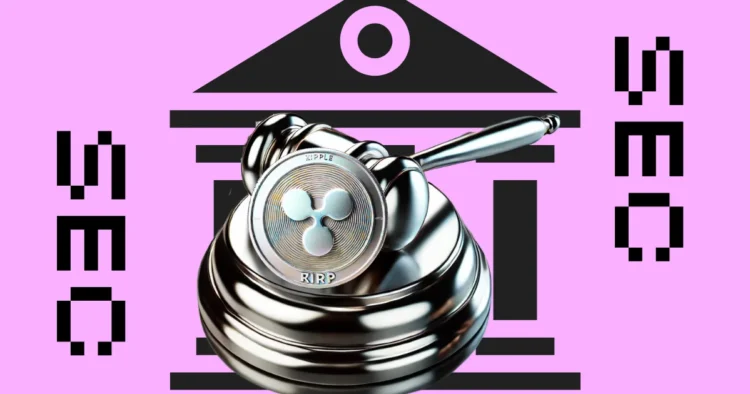Legal expert Bill Morgan recently provided an in-depth analysis of the SEC vs. Ripple appeal, addressing pressing concerns among XRP holders. Morgan’s insights suggest that while some legal comments, known as obiter dictum, might be revisited during the appeal process, XRP’s fundamental status as a non-security is unlikely to face significant challenges.
Countdown to the Appeal Deadline
With just 28 days left before the window for re-appeal closes, both parties are gearing up for what could be a pivotal legal showdown. The SEC has publicly clarified that it is not seeking to overturn the ruling that XRP is not a security. This assurance came when the SEC sought permission to appeal, confirming that XRP’s classification would not be up for debate.
Morgan pointed out in his X post:
“Don’t want to be accused of FUD with respect to XRP but obiter is not untouchable on appeal. The SEC did however indicate when it sought leave to file an interlocutory appeal it was not seeking to challenge the finding XRP itself is not a security.”
This reassurance implies that while certain legal details might be reconsidered, the core decision that XRP is not a security should remain intact.
Could Legal Loopholes Change Things?
Morgan, leveraging his expertise in Australian law, noted that obiter dictum could be reviewed if the main reasoning behind the ruling (ratio decidendi) is brought into question. However, he emphasized that XRP’s status as a non-security is not in jeopardy. He speculated that U.S. law might handle this similarly, though he acknowledged that the appellate court might interpret the issue differently.
Insights from a Former SEC Director
Marc Fagel, a legal expert and former SEC Regional Director, joined the conversation, aligning his views with Morgan’s analysis. Fagel mentioned that while the SEC could attempt to appeal this aspect of the ruling, it might not be a significant part of their strategy.
“The district court erred in stating that XRP is not itself a security; and if it is, then the holding on programmatic sales gets reversed. But they could also reverse the programmatic sales without addressing the question of XRP being a security per se (as seems more likely).”
Fagel clarified that although the SEC has room to push for a broader appeal, it’s unlikely that the Second Circuit Court of Appeals would address XRP’s non-security status directly. He pointed out that even though the SEC has remained vague in several similar cases, it does not necessarily mean that the court will take up that specific question.
The Road Ahead
Both Fagel and Morgan concur that while legal nuances might be explored, the Second Circuit is unlikely to directly reconsider XRP’s classification. In sum, the likelihood of XRP’s security status being overturned seems minimal. Although the appeal could delve into legal intricacies, the core decision that XRP is not a security appears solid despite ongoing litigation.
As the appeal deadline approaches, the cryptocurrency world watches closely. What will happen next?
Read Also: Ripple Lawsuit News: How SEC’s Appeal Could Impact XRP Price











